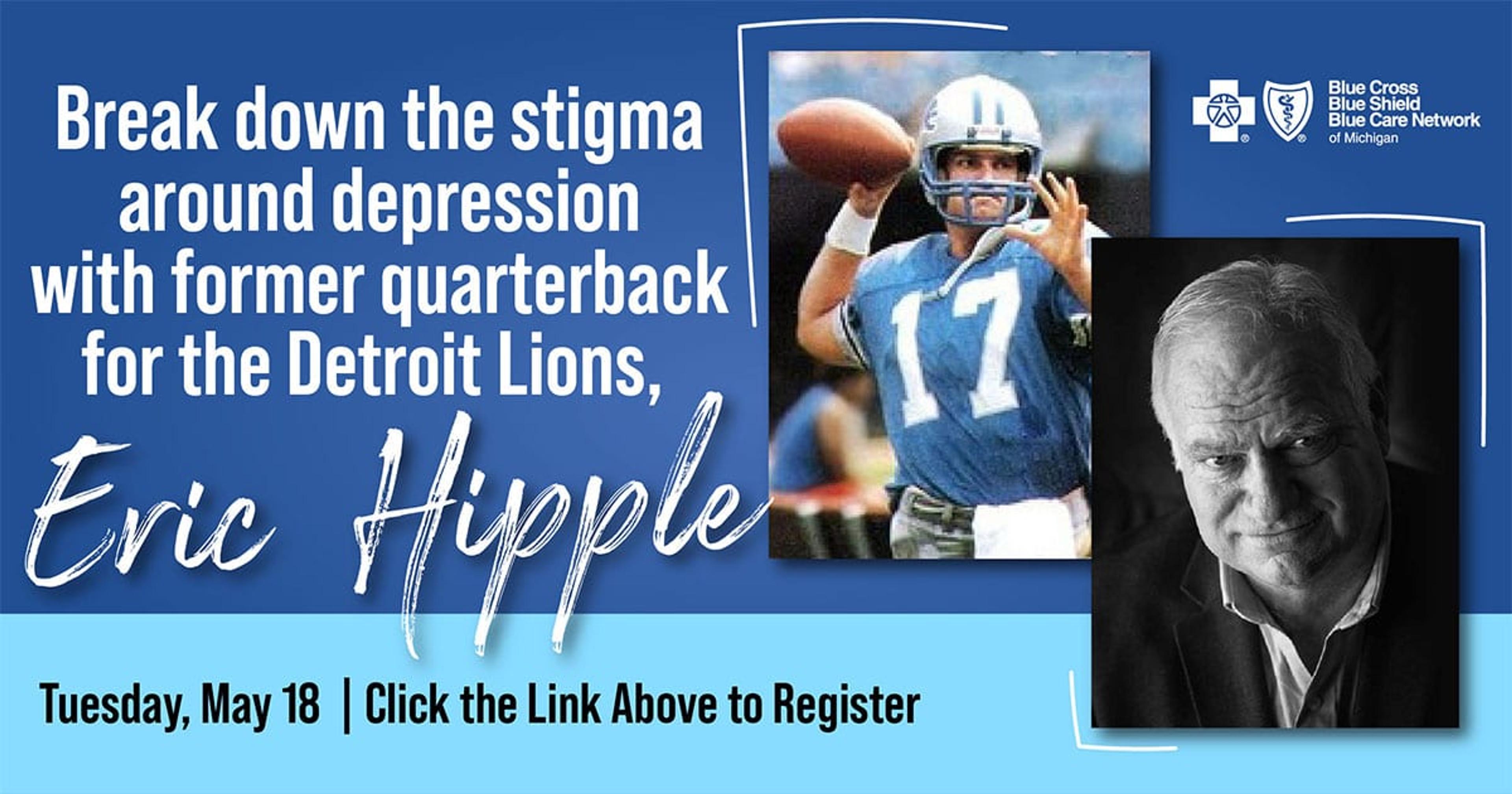
Former Detroit Lions quarterback Eric Hipple understands the devastating impact of depression. He struggled with the condition most of his life until the death of his 15-year-old son by suicide in 2000 led him to seek treatment. Over the past decade, he has become an advocate for mental fitness and authored the book “Real Men Do Cry,” about his life-changing journey. “Stigma surrounds getting help for mental health issues, but we need to bust through that,” said Hipple. “We’re all works in progress. Life is a journey. It’s a continuum.” Hipple, 63, stresses that people should give their mental behavioral health as much focus as they do their physical health. The well-known athlete is partnering with Blue Cross Blue Shield of Michigan on a new behavioral health program to support employees and customers.
Two outcomes
His son, Jeff, and daughter, Tarah, both struggled with behavioral health conditions as teenagers, but they had different outcomes. The family did not recognize the signs of depression or suicide risk in Jeff. Hipple said his son did not receive a suicide screening, therapy, or support he needed because of their lack of knowledge. Jeff died by suicide. Tarah, was 7 years old when her brother — who was babysitting her at the time — died. As she neared her 15th birthday, Tarah began showing signs of behavioral health struggles: depression, anxiety and cutting herself. With what the family learned after Jeff’s death and Hipple’s own journey, he made sure she received a suicide screening assessment, followed by treatment for trauma with a therapist. Now an adult, Tarah works as a therapist helping patients with trauma, Hipple said. “Two different outcomes based on knowledge, stigma and information, and that's so telling of the different outcomes we could have with everybody getting help,” Hipple said. As a champion for mental wellness, Hipple is using his story to raise awareness about the importance of knowing the signs of depression and suicide risk, how to create a plan when help is needed, and addressing the stigma that stops many people from getting the care they need. For more information on Blue Cross behavioral health options, visit bcbsm.com/mentalhealth. You can watch Eric Hipple discuss his behavioral health journey in this Blue Cross® Virtual Well-Being webinar. You can also sign up for future employer-focused and general interest webinars here, where you’ll find past sessions and resources. Related:





